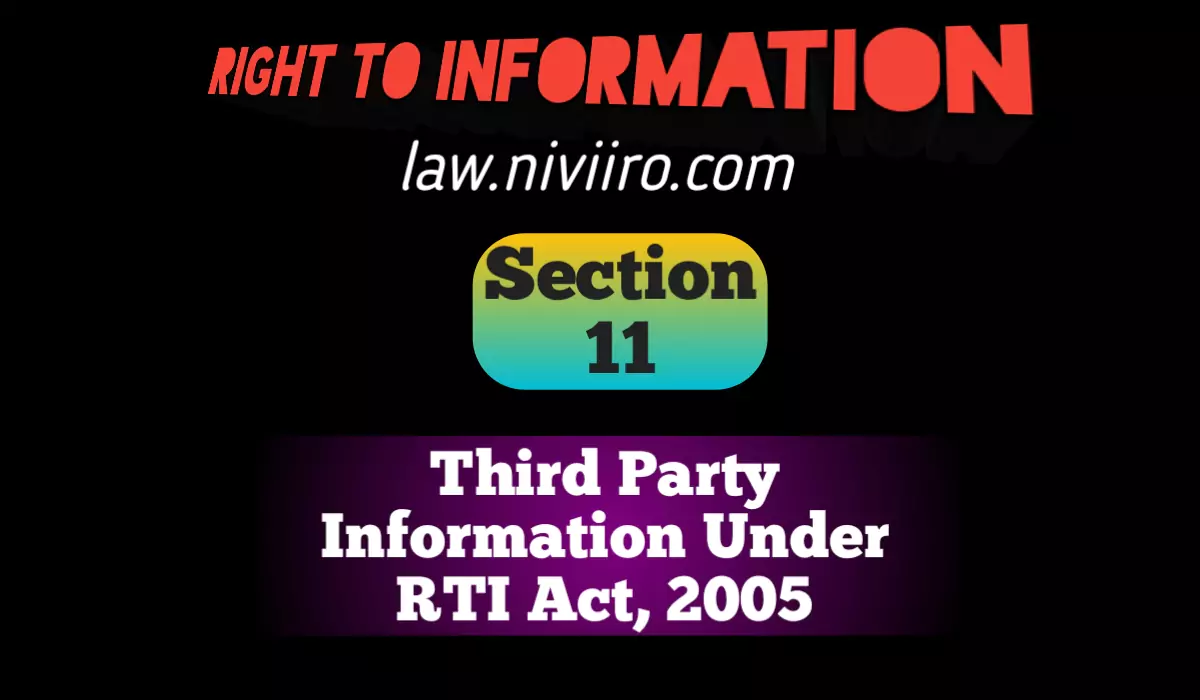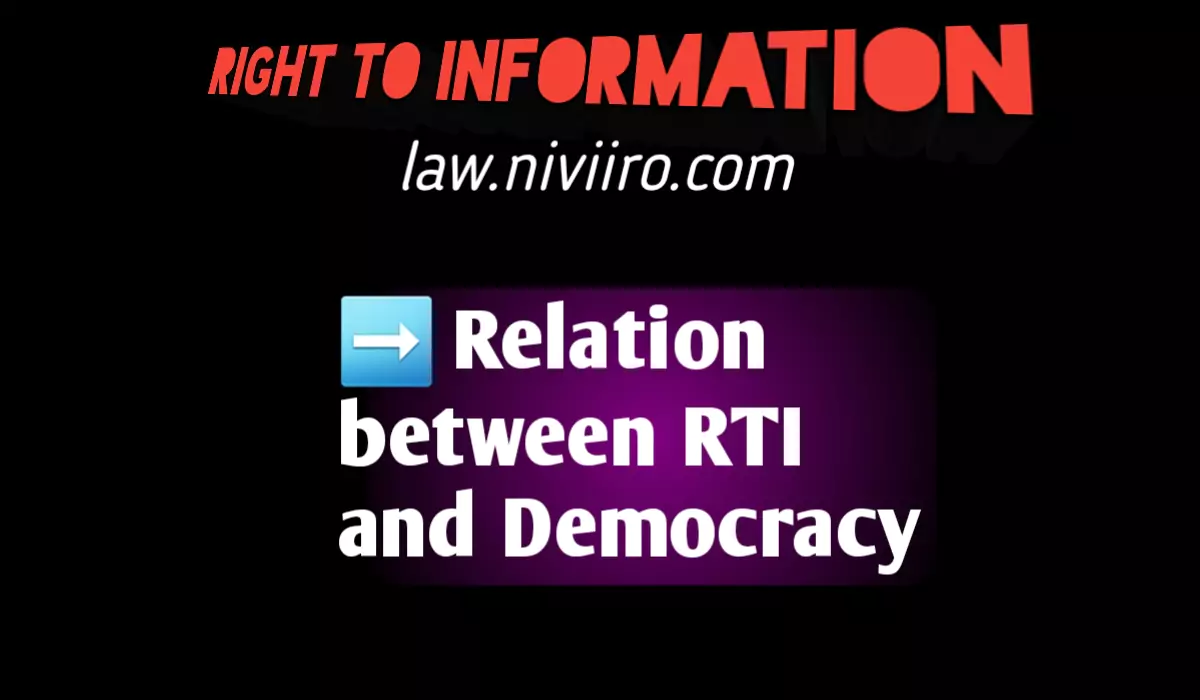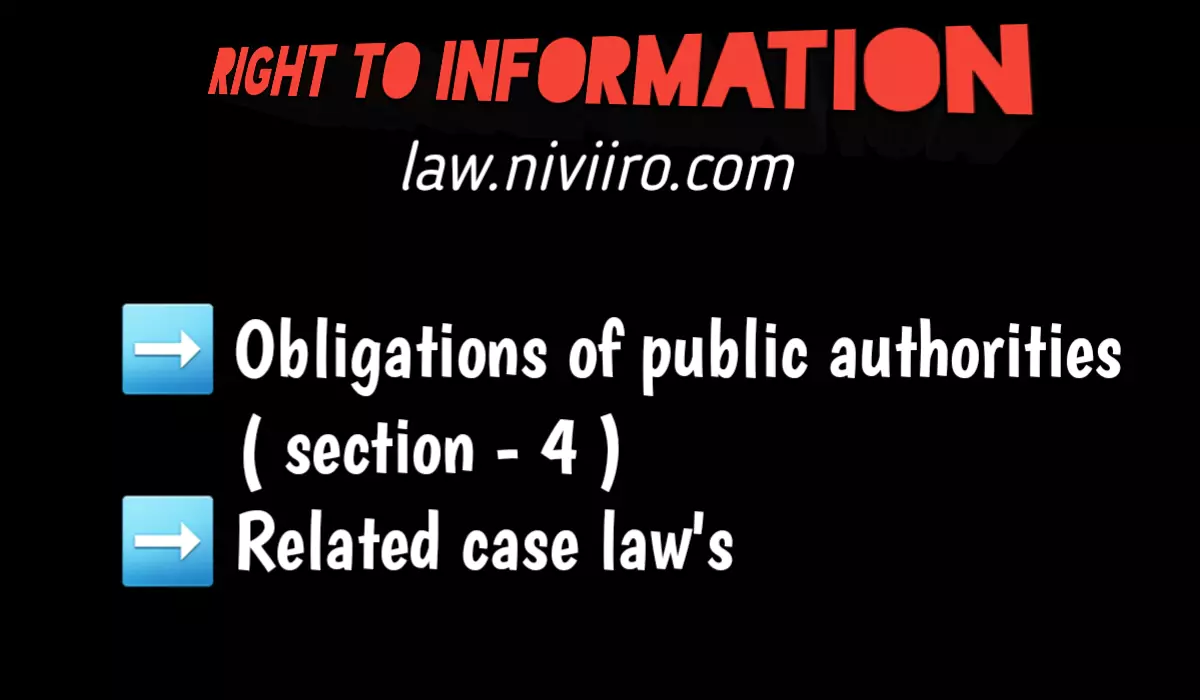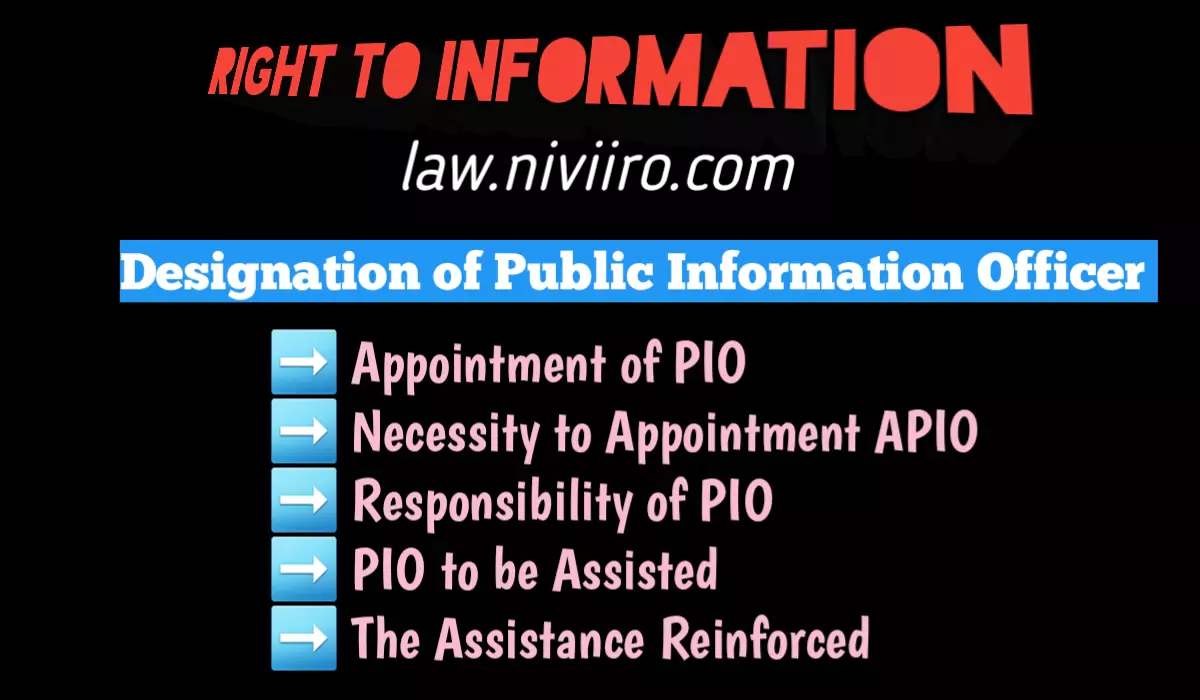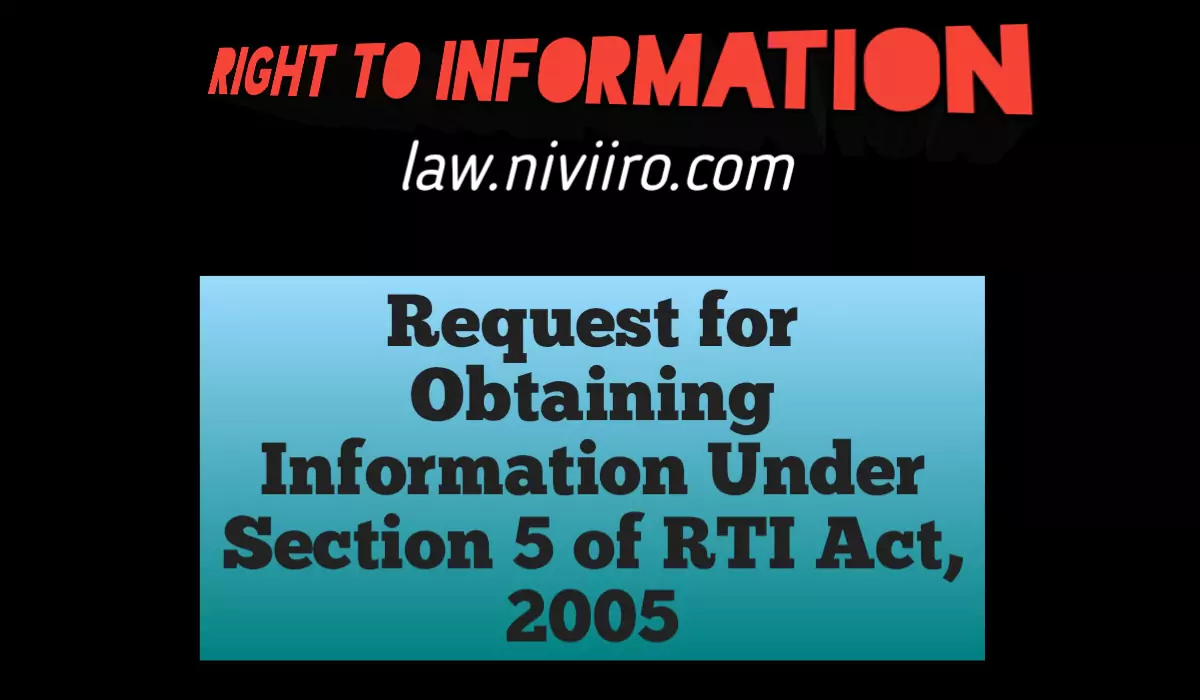Third Party Information Under RTI Act, 2005 – Under the Right to Information (RTI) Act, 2005, there may be cases where the information requested by an applicant contains third-party information. Third-party information refers to information that belongs to a person or organization other than the applicant and the public authority.
The RTI Act provides a mechanism to protect third-party information from disclosure. The public authority must give notice to the third party whose information is being sought and give them an opportunity to present their views before making a decision on whether to disclose the information.
Following are the provision related to Third Party Information Under section 11 of RTI Act, 2005.
Right Of The Third Party { Section 11(1) }
11(1) Where a Central Public Information Officer or a State Public Information Officer, as the case may be, intends to disclose any information or record, or part thereof on a request made under this Act, which relates to or has been supplied by a third party and has been treated as confidential by that third party, the Central Public Information Officer or State Public Information Officer, as the case may be, shall within five days from the receipt of the request, give a written notice to such third party of the request and of the fact that the Central Public Information Officer or State Public Information Officer,
as the case may be, intends to disclose the information or record, or part thereof and invite the third party to make a submission in writing or orally, regarding whether the information should be disclosed, and such submission of the third party shall be kept in view while taking a decision about disclosure of information:
Provided that except in the case of trade or commercial secrets protected by law, disclosure may be allowed if the public interest in disclosure outweighs in importance any possible harm or injury to the interest of such third party.
Explanation – This section of the Act is primarily intended to protect the interests of a third party when making a decision regarding the disclosure of information about that third party. It relates to information provided in confidence to the public authority by a third party. In general, it is founded on mutual trust and confidence between the Public Authorities and such third party.
As a result, when a request for such information is made, the concerned SPIO must make a preliminary determination as to whether such information should be provided. Once he intends to disclose this information to the applicant under the Act, he has to hear the third party by way of notice within five days of receipt of application. The SPIO would give notice, indicating the fact of his intention to impart this information inviting third party to make his oral or written representation, if any, in this regard. While taking such decision the SPIO would consider such representation.
However, there is no specific exemption or ban on disclosure of such information under this section. Except in the case of trade and commercial secrets, as provided under Section 8(1)(d) of the Act, any such information may be disclosed in public interest. However, it may be appreciated that under the exempted provisions of Section 8(1) (d) also it has to be provided, if the disclosure of such information outweighs the protected interest involved in such disclosures.
Therefore, tentatively and apparently both the provisions lead to the same conclusion. But still there is a difference of strength and force behind these two provisions. When the specific information regarding trade and commercial secrets has been exempted under Section 8 (1) (d) and the same thing has been reiterated under proviso to Section 11 (1), it means that the information related to this provision has to be given only under extra-ordinary standards of requirement of disclosure.
The information on the subjects mentioned under Section 8(1) (d) has to be disclosed only when an extraordinary requirement does exist. The exemptions provided under the Act make this information a part of a specific class which deserves special treatment while deciding the issue of disclosure. Therefore, such information has not to be allowed in routine. However, the remaining information as provided under the provisions of Section 11 has to be decided under this section keeping in view the protected interest of the third party and the public interest involved in the disclosure of such information.
The Opportunity Of Hearing { Section 11(2) }
11(2) Where a notice in served by the Central Public Information Officer or State Public Information Officer, as the case may be, under sub-section (1) to a third party in respect of any information or record or part thereof, the third party shall, within ten days from the date of receipt of such notice, be given the opportunity to make representation against the proposed disclosure.
Explanation – This sub-section provides for the response of the third party to the notice issued to hin: under sub-section (1). The stipulated period of such response is 10 days. The third party has to respond to this notice in the form of a representation which may be oral or in writing. If he fails to represent within this period it may be presumed that he/she has nothing to say against the disclosure of such information.
The CIC (FB) in Bombay Stock Exchange v. Security and Exchange Board of India (SEBD), was held that it was not binding obligation on the PIO to except the objections filed by the third party under Section 110) of the Act. It is just to given an opportunity to such third party to present their case before a decision was taken regarding the dissemination of information.
The Extended Limit { Section 11(3) }
11(3) Notwithstanding anything contained in Section 7, the Central Public Information Officer or State Public Information Officer, as the case may be, shall, within forty days after receipt of the request under Section 6, if the third party has been given an opportunity to make representation under sub-section (2), make a decision as to whether or not to disclose the information or record or part thereof and give in writing the notice of his decision to the third party.
Explanation – It expresses the impact of third-party proceedings on the response period of the SPIO’s disposal of the application. The proceedings initiated by notice under subsection (1) and the answer to the notice received under subsection (2) cause a delay in the final judgement under Section 7. (1). The duration of the proceedings causes the final disposal restriction to be extended. As a result, it is an exemption to the thirty-day time restriction specified in Section 7. (1).
However, it has been kept forty days in spite of the fact that the proceedings under Section 11 have consumed extra period of 15 days. 1. five days for notice and ten days for its response. Therefore, it has been the consistent effort within the provisions of the Act to expedite the disposal of the information as early as possible. The SPIO and the other authorities under the Act have to read this spirit between the lines. The decision taken under this sub-section has to be notified to the third party.
Right To Appeal Of The Third Party { Section 11(4) }
11(4) A notice given under sub-section (3) shall include a statement that the third party to whom the notice is given is entitled to prefer an appeal under Section 19 against the decision.
Explanation – It provides for informing the third party of his right to appeal through the notice of decision provided for in sub-section (3). If the third party is dissatisfied with the decision of the SPIO given to him/her under sub-section, he/she has the right to appeal under Section 19. (3).
The purpose of the statement to be included in the notice is simply to make the proceedings transparent and to guarantee that the third party’s interests are not jeopardised owing to ignorance of the Act’s provisions. Though as a general principle of law the ignorance of law is no excuse, but here an attempt has been made to avoid such a situation by entrusting this responsibility to the SPIO to make the third party aware of law.
Related Post | Third Party Information Under RTI Act, 2005
- Central Information Commission | Composition | Term | Removal
- State Information Commission | Composition | Term and service | Removal
- Meaning of RTI | Background | Objects
- Severability Under the RTI Act, 2005 | Section 10
- Relation between RTI and Corruption
- Grounds For Rejection to Access Information In Certain Cases under RTI Act, 2005
- Exemption From Disclosure of Information under RTI Act, 2005
References
- Commentary on The Right to Information Act by J. N. Barowalia, 2010
- Right To Information Law & Practice by R. K. Verma, 2010
- The RTI Story: Power to the People by Aruna Roy, 2018
- Right to Information by K. B. Rai, 2020













